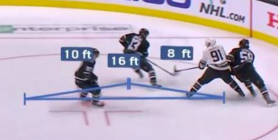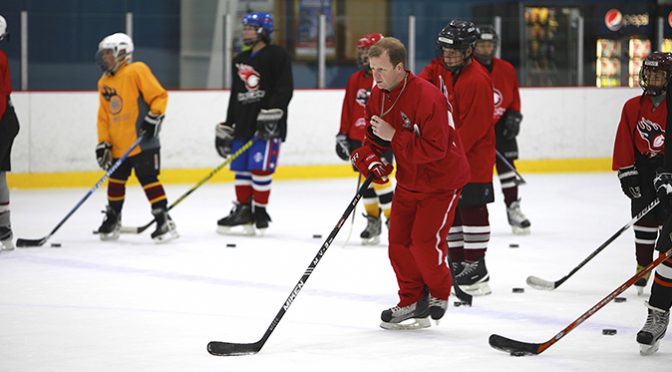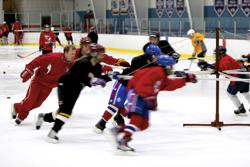15
October
What’s The Story Behind The Stats?
Posted by Greg Carter

This season the NHL is debuting a puck and player tracking system that includes sensors in the puck and devices embedded in uniforms. This all sounds great for the pros, but when it comes to youth hockey, what’s the story behind the stats?
Data and analytics are a part of everyday life as it seems virtually every move we make can be tracked on the internet and across our devices. Sports have changed dramatically because of data and analytics to the point that a Major League Baseball game can have a batter at the plate hitting against an infield with not a single player to the left side of second base.
Leveraging technology to better understand trends of players and teams has simply become the norm and part of the game. But should what works at the professional level also be utilized for youth sports teams and players?
The NHL plans to have their system ready by the 2020 Stanley Cup where millions of data points will be collected during every game. Some of the more notable stats include:
- Player speed
- Time in offensive vs. defensive zone
- Distance between players
- Total distance a player skates
- Time of possession
- Puck trail
- Length of shift
During the 2019 NHL All Star game some initial testing was done and it was found that players skated over three miles during a game and a couple of players skated over 20 mph! Time of possession is an interesting stat because like football, it is a great indicator of which team is in control. Distance between players is another interesting stat that could aid in gap control for defensemen.
While this technology is expensive and likely not something that is going to creep into the youth game anytime soon, it does beg the question: What are the Key Performance Indicators (KPI’s) for youth hockey?
At Greg Carter Hockey School we think that the data for youth hockey players that determine a successful season should include:
- Did I have fun this season?
- Did I improve my skills this season?
- Did I show up with a good attitude and work hard at every practice?
- Was I intent on learning from my coaches and teammates?
- Was I a good teammate?
- Am I going to play hockey again next season?
If the answer to each of these questions is yes, then the probability of success is extremely high! And that is a statistic that nobody can debate.
Thanks for reading and we hope you are off to a great start this season. Greg Carter Hockey School is headquartered in Concord, Massachusetts and we are starting our 26th year of Summer Hockey Schools. Click the following links for more information about our Sunday Night Skills Sessions, our Thanksgiving Clinic or our 2020 Summer Hockey Schools!






 Subscribe
Subscribe Subscribe
Subscribe




